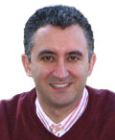Child Development
My Friend Mike
Martin Luther King through the eyes of his friend, Michael Haynes.
Posted January 19, 2021
On Martin Luther King Jr. Day 2019, a commemoration was held in Roxbury, where speakers included Senator Elizabeth Warren, then a new candidate for President, and Ayanna Pressley, a new candidate for Congress. The politicians got most of the attention, but the keynote speaker in that small church vestibule was the lesser-known Reverend Michael Haynes, and the title of his talk was: “My friend Mike.”
Martin Luther King Jr. lived and studied in Boston in the early 1950s, as many know, just before the 1955 Montgomery bus boycott rocketed him to fame and tragedy. His friends, as most don’t know, called him Mike. Michael Haynes was a native Bostonian, child of Caribbean immigrants, who grew up with the family of Malcolm X and became close to King as they both attended Twelfth Baptist Church and studied theology together at Boston University. I visited Rev. Haynes a few times, and he generously met me in his home in Dorchester. As we talked in his living room, with pictures of him and Dr. King on the table, he recalled the young man whose oratory, even as a doctoral student, was impressive. “Wow!” Haynes recalled, as his first reaction to hearing the young King preach. As I left a while later, Haynes pushed the button on his answering machine. “Hi Mike,” the voice said. “I hope you’re doing well. I just wanted to check on you.” It was Louis Farrakhan, another Boston native and childhood friend of the Haynes family.
By the time Michael Haynes gave his last talk about his friend Mike, he had gotten rather old, and his speech was disorganized and digressive and long. The audience was very tolerant. They respected the old man for who he was more than for what he said. Haynes had later become pastor of Twelfth Baptist and a state representative. He was King’s main ally in Boston, his confidante and his main companion whenever King visited Boston for rallies. The last time the two men met, during a rally in Boston in 1967, Haynes remembered dropping King off at Logan airport and watching him walk away like any other passenger, carrying his bag alongside his traveling companion Bernard Lee. That’s the last time I saw him, Haynes recalled to me. A half-century later, Mike Haynes often still thought about his friend. It wasn’t Martin Luther King Jr. the hero that he recalled; it was Mike King, the man, the good man, who worked tirelessly his entire life to end racism.
I went up to Rev. Haynes after his 2019 MLK Day talk and reintroduced myself. I remember you, he said. I asked if we could visit again, and he agreed. But it didn’t happen. He passed away later that year at the age of 92.
For me, when I think of Dr. King and his Boston roots, I think of Rev. Haynes. I think of the lifelong impact that Dr. King had as a person on all those around him. Those who knew him mostly have passed; a few remain. Those of us who have been lucky to know some in Dr. King’s circle can hope to have caught a deflected ray of his greatness, to have felt it, and to reflect now and then to others the man and not just the image.
The man was nonviolent in his thoughts and words, not just in his deeds. He was humble despite constant adulation. He was depressed at times and despairing. He was scared. He was funny. He was happy. And he had his faults, some of which we know and some we don't, but that only makes him more human — not a hero on a pedestal to be worshipped, but a regular person to be appreciated.
People say there won't be another King. There are many in fact, but we don't appreciate them. And, just as importantly, there is the other Mike; there are many like Michael Haynes, and we appreciate them even less.
This MLK Day, and every other, let's not parrot nonviolent concepts in the abstract. Let's get to know the real Mike King and Mike Haynes, and then we'll be doing their memory justice.


